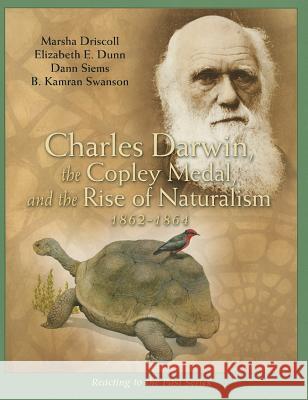Charles Darwin, the Copley Medal, and the Rise of Naturalism, 1862-1864 » książka
Charles Darwin, the Copley Medal, and the Rise of Naturalism, 1862-1864
ISBN-13: 9780393937268 / Angielski / Miękka / 2014 / 176 str.
A significant component of theDarwin game is the tension between natural and teleological views of the world, manifested especially in reconsideration of the design argument, commonly known through William Paley's Natural Theology; or, Evidences of the Existence and Attributes of the Deity (1802) and updated by Wilberforce. But the scientific debate also percolated through a host of related issues: the meaning and purposes of inductive and hypothetical speculation in science; the professionalization of science; the implications of Darwinism for social reform, racial theories, and women's rights; and the evolving concept of causation in sciences and its implications for public policy. Because of the revolutionary potential of Darwin's ideas, the connections between science and nearly every other aspect of culture became increasingly evident. Scientific papers and laboratory demonstrations presented in Royal Society meetings during the game provide the backdrop for momentous conflict, conflict that continues to shape our perceptions of modern science. Reacting to the Past is a series of historical role-playing games that explore important ideas by re-creating the contexts that shaped them. Students are assigned roles, informed by classic texts, set in particular moments of intellectual and social ferment. An award-winning active-learning pedagogy, Reacting to the Past improves speaking, writing, and leadership skills, promotes engagement with classic texts and history, and builds learning communities. Reacting can be used across the curriculum, from the first-year general education class to "capstone" experiences. A Reacting game can also function as the discussion component of lecture classes, or it can be enlisted for intersession courses, honors programs, and other specialized curricular purposes.











